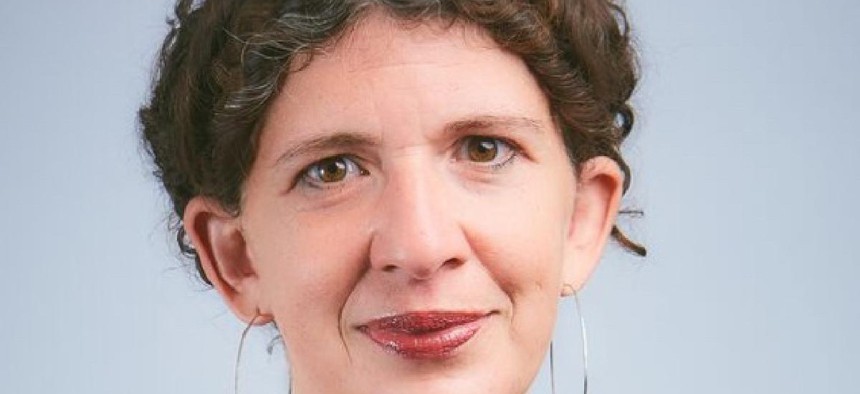Vera Institute spins off a new nonprofit focused on ending mass incarceration

An organization dedicated to rehabilitating violent felons, developing alternatives to incarceration and helping victims of violent crime was recently spun off from the Vera Institute of Justice to become its own nonprofit, starting Oct. 1.
Common Justice, which has a $2.5 million budget and 15 full-time employees, is the latest organization to emerge from the Vera Institute, which focuses on spurring criminal justice and law enforcement reforms across the country and often serves as a social justice incubator.
Danielle Sered, executive director of the program, said the project had “outgrown the container” of the Vera Institute. “We’ve become real national leaders in the movement to end mass incarceration, and the movement for crime survivors in America,” she said. “And we need the room and bandwidth that only an independent organization can really allow.”
Common Justice, like the Vera Institute, is based in New York City. Common Justice operates an alternative to incarceration and victim service program for serious and violent felonies and works nationally to challenge mass incarceration, which has ballooned over the past 40 years. Criminal justice advocates contend funneling people into prison harms offenders’ future job prospects, leads to recidivism, doesn’t treat the underlying cause of violence and disproportionately harms minority communities.
“There just isn’t a way to a right-sized criminal justice system that doesn’t require us to take on the question of violence,” she said, due to the sheer volume of offenders jailed for violent crimes.
A major component of Common Justice’s work in New York involves engaging willing crime victims to help advocate for alternatives to incarceration. The victims help shape what offenders’ consequences and rehabilitation can look like. For the wrongdoer, this can include performing community service, paying restitution or agreeing to find a job or go to school. About 80 defendants and 100 victims have gone through the program to date. Since 2012, only one person has been terminated from the program for committing a new crime, Sered said.
Common Justice will retain its funding model, programs and staff developed at Vera, but will develop its own support infrastructure and form its own board of directors. A significant driver of the separation is a grant from the Ford Foundation’s Building Institutions and Networks initiative. The foundation aims to distribute $1 billion to as many as 300 social justice institutions across the world.
“I think people who are used to mergers and separations in the corporate sector presume they arise out of some kind of conflict, and in fact, the unique methodology of Vera is that that separation is a sign of success,” Sered said.
Common Justice is the 18th group to spin off from Vera as an independent nonprofit, including the Guardian Assistance Network, and Esperanza, according to a Vera Institute spokeswoman. Other programs have been absorbed by other nonprofits or government entities. The institute even has its own toolkit for organizations seeking to become independent.
“We are proud to have nurtured Common Justice’s cutting-edge work and have immense confidence in the new and lasting contributions they will make as an independent organization,” Nick Turner, president of the Vera Institute, said in a statement.
Common Justice also operates HealingWorks, which is a national project helping young men of color – and their communities – recover from violence and trauma.
At the federal level, the thinking around how to address mass incarceration has shifted. Groups dedicated to ending mass incarceration and interrupting the school-to-prison pipeline garnered more attention and support from the Obama administration, while the Trump administration has reverted to harsher drug penalties, stricter sentencing guidelines and has been supportive of private prisons.
However, Sered said it was Common Justice’s job to grow, develop better ideas, influence decisions made at the state and local levels and prove what works. “And that appetite is undiminished by the shift in the federal winds,” she said. “If anything, I feel like the sense of urgency is even greater than it’s been.”
